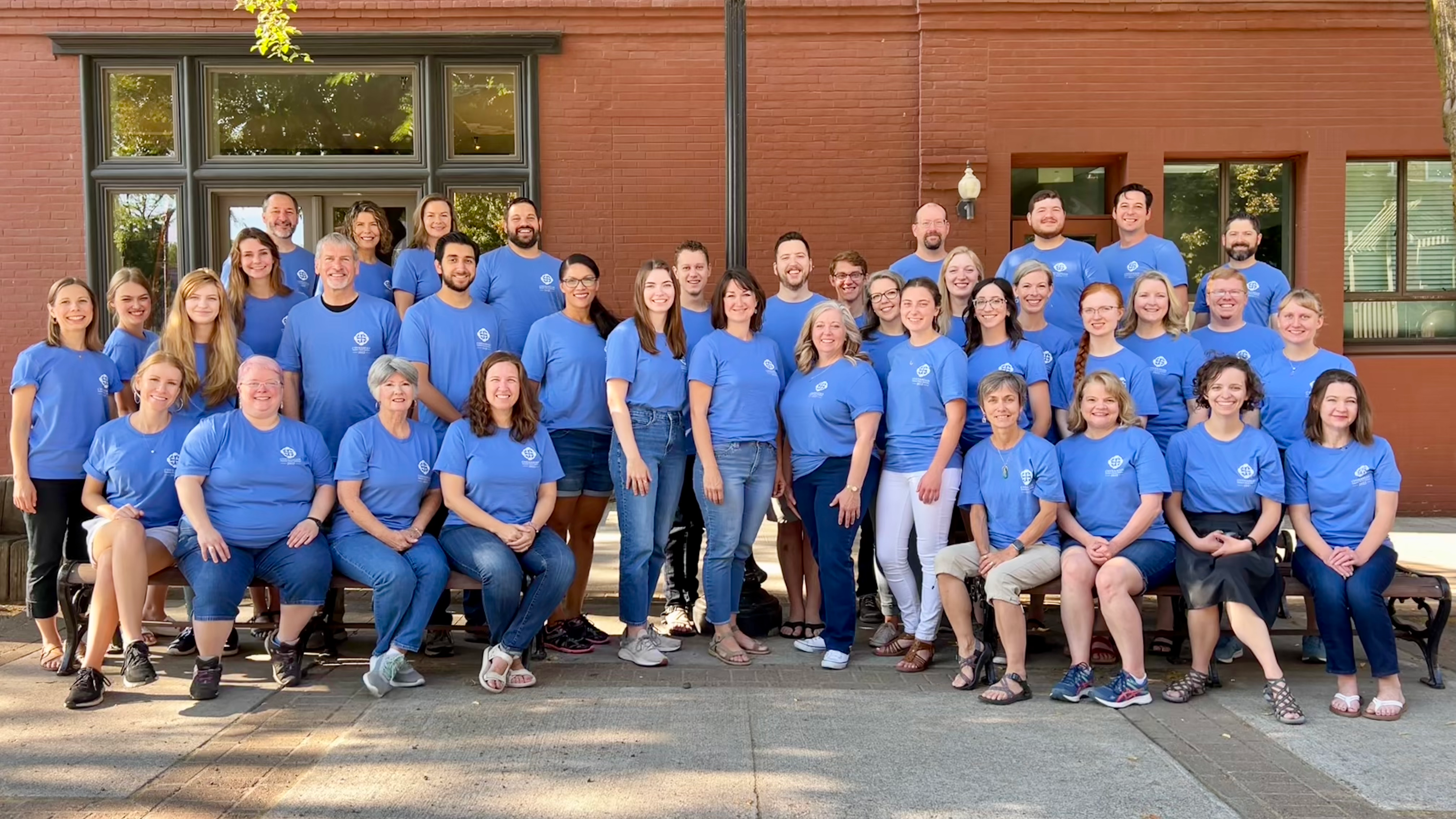Why Study at Chenaniah?
In the Old Testament days of King David, Chenaniah was in charge of the singing; he instructed in singing because he was skillful (1 Chron. 15:22;27). Similarly, the Chenaniah Summer Music Institute aims to equip music teachers with the skills needed to better teach singing and music literacy to those in the communities and churches where they labor. We offer all instruction through the lens of a Christian worldview. In this two-week intensive training session, participants will receive an education in singing-based music training emphasizing music literacy-driven pedagogy.
This comprehensive approach to music education uses a sequential curriculum of games, folk music, and singing to inspire students of all ages to love music and develop musical literacy skills. The unique part of this course of study is its integration of Christianity with the Kodály and Suzuki methods. This pairing will entail classes that examine music and theology and how a biblical worldview can affect and permeate music teaching.
Music Literacy Approach
Learn distinctions for teaching students complete music literacy–reading, writing, singing/thinking in music.
Two Weeks Each Summer
The two-week course is designed for the working music teacher or church leader seeking further training in music.
New Saint Andrews
Hosted by New Saint Andrews Conservatory of Music the middle two weeks of July each summer in Moscow, Idaho.
Music Connections
Come train with folks who are like-minded and also teaching in other classical and Christian music environments.
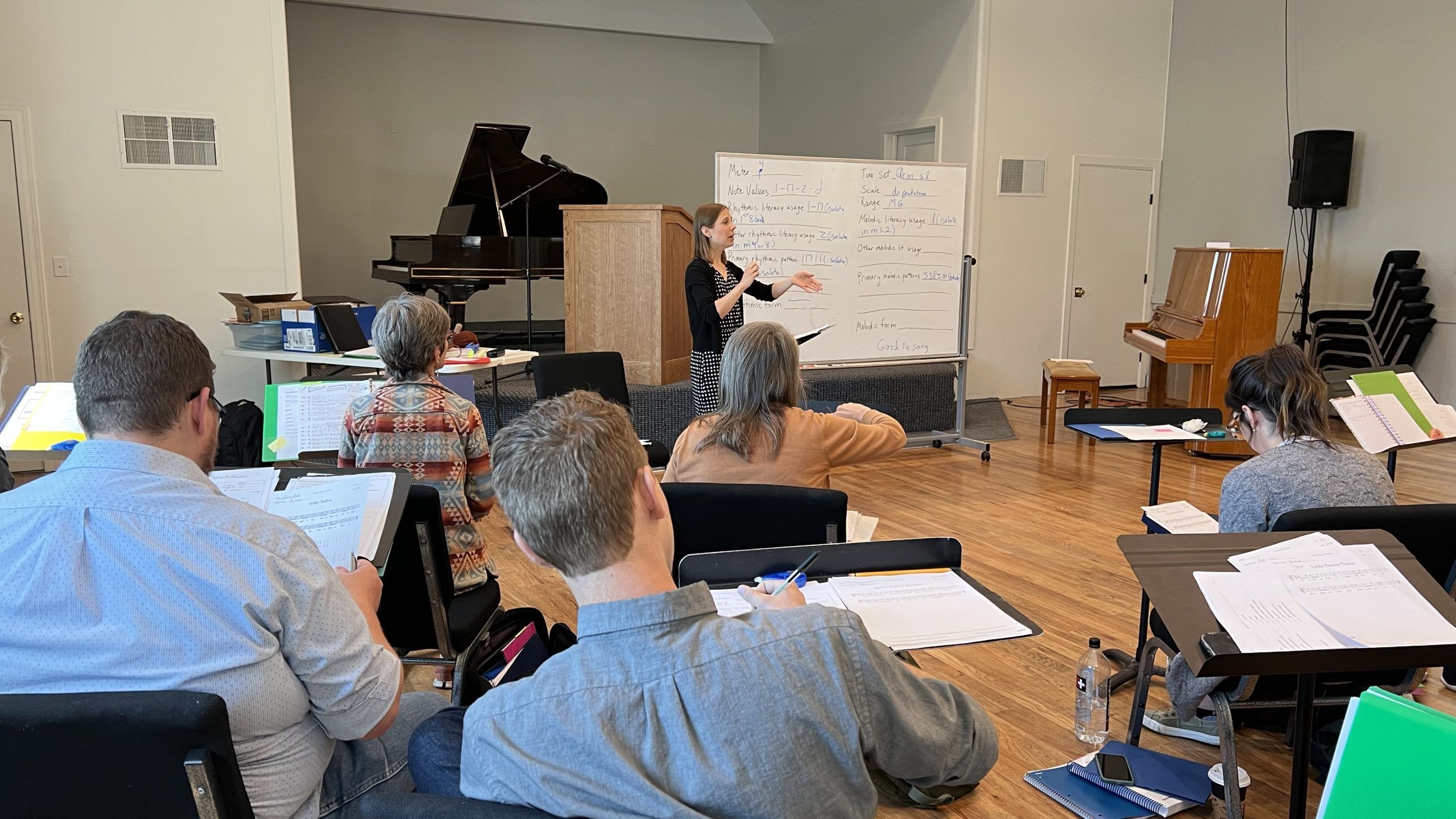
CHENANIAH SUMMER MUSIC INSTITUTE (CSMI)
JULY 6 - 18, 2026
Registration Opening Date TBA
David Erb and Jarrod Richey founded the Chenaniah Summer Music Institute in 2017 with a vision to assist musicians and music educators in their abilities to train a generation of musicians in our schools and churches. The Chenaniah Summer Music Institute offers three tracks each summer: Kodály Music, String Pedagogy, and Advanced Conducting Tracks.
2025 CHENANIAH SUMMER MUSIC INSTITUTE
TRACKS TO CHOOSE FROM IN 2025:
KODÁLY MUSIC TRACK
This Kodály certification is for those vocal, choir, and general music teachers who want to train students of all ages in music literacy. It is a three-summer certification.
STRING PEDAGOGY TRACK
This track is for those instrumental string teachers focused on music literacy but more instrumental than vocal/choral. This program mixes Kodály with Suzuki-inspired pedagogy.
CONDUCTING TRACK
This track is for conductors who want advanced instruction in their choral craft. Participants must audition and be accepted. A limited number of seats are available. This is a one-summer program of study with Dr. David Erb.
CSMI KODÁLY COURSE COMPONENTS:
All tracks will have these elements components built into their coursework.
1.
Pedagogy/Literature
Learn how to sequential teach in the various methods from master teachers in Kodály, Suzuki, and Choral Conducting pedagogies.
2.
Musicianship
Build upon your personal musicianship through sight-singing, dictation, memorization, solfege, and more in an effort to better equip the music educator.
3.
Conducting/Choir
All participants sing in a course choir with rehearsals each day of the week. They also practice the fundamentals of choral and instrumental conducting.
4.
Special Topics
A variety of classes are designed to help the classical and Christian educator better be equipped to teach. Past special topics have included: folk dancing, psalm-singing, & more.
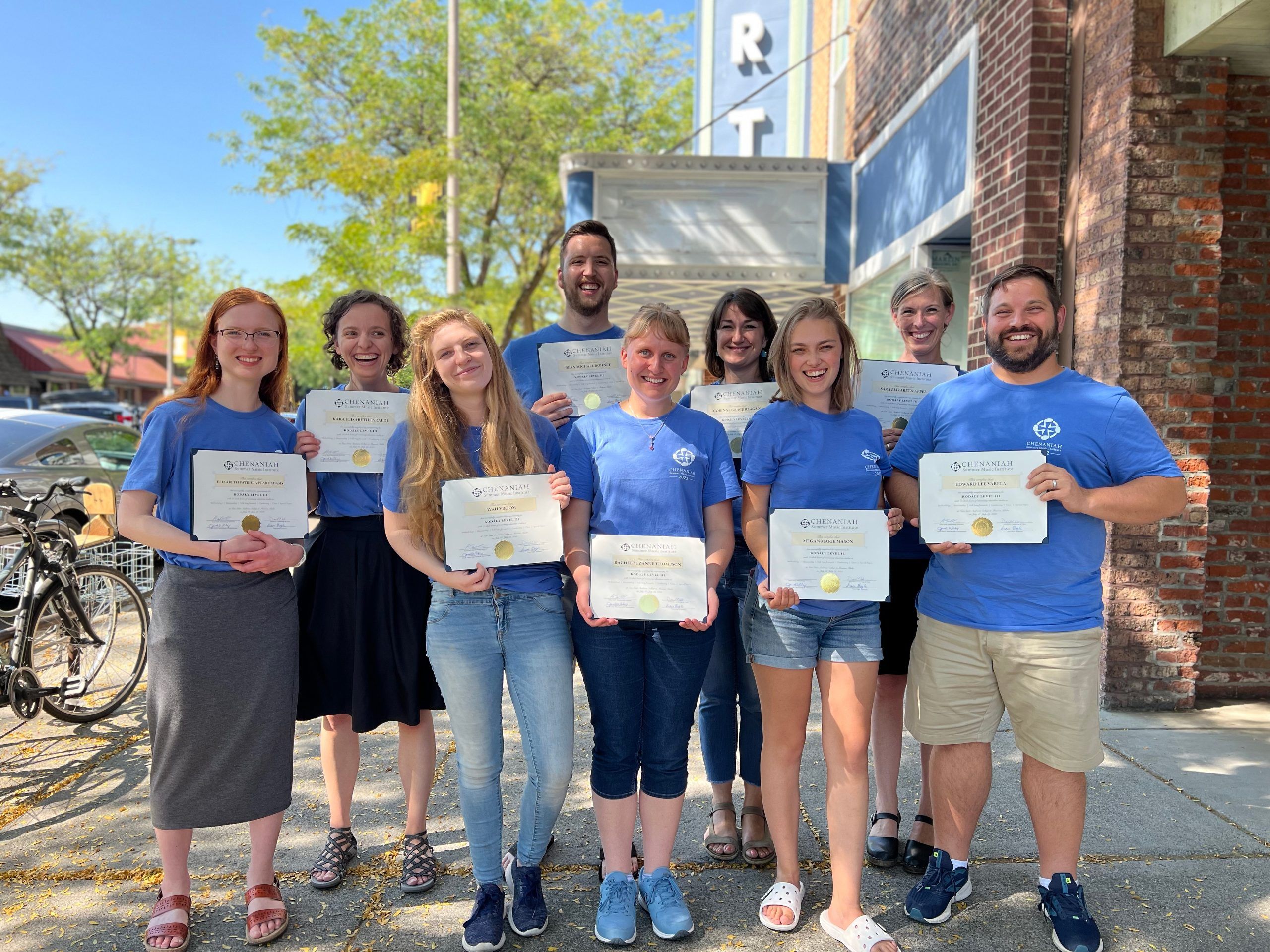
Participants begin arriving Saturday evening or Sunday afternoon for our Sunday evening orientation. Classes go from Monday, July 7, through Friday, July 18, 2025, with no official class meetings over the weekend. Students typically have individual/group projects and homework during the weekend. CSMI Kodály certification can be obtained upon the successful completion of all three levels of instruction over three summers.
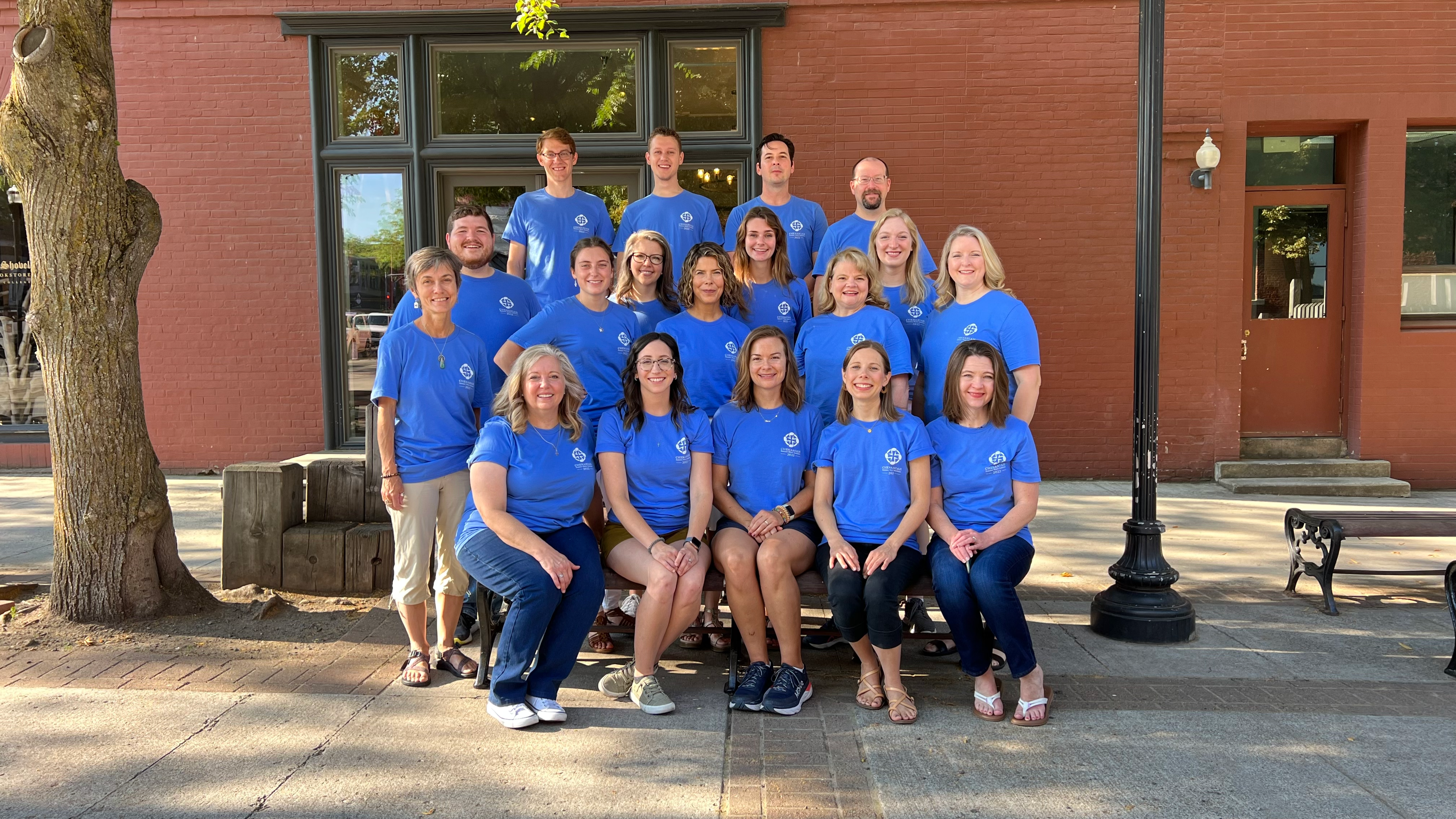
Who Should Attend CSMI?
The course is designed for the musician/music educator or those further desiring training and equipping in teaching and advancing music literacy in their churches, schools, and communities. Ordinarily, participants should have collegiate-level music instruction from an undergraduate or graduate degree in music.
Our Distinctives:
- Learn musical pedagogies from an integrated biblical worldview with application and tailoring for Classical Christian school music, choir, and/or orchestra teachers.
- Our highly accomplished staff has years of classroom experience, particularly in classical schools and churches.
- Undergraduate credit, graduate credit, and non-credit options are available for those who need them.
- The chance to visit the beautiful Northwest in the Summer and enjoy the fabulous culture of Moscow, Idaho and take classes in the downtown campus of New Saint Andrews College.
CSMI INSTRUCTORS
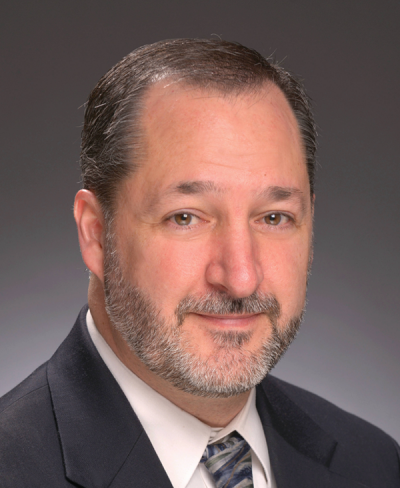
derb@nsa.edu
208-882-1566
David R. Erb, DMA
Director of the Conservatory & Fellow of Music
Dr. David Erb joined the New Saint Andrews College faculty as a Fellow of Music in 2008, leaving his posts at Trinity Church and Providence Classical Christian School in the Seattle area. Dr. Erb is also the Conducting Levels 1, 2, & 3 Instructor for the Chenaniah Summer Music Institute. He holds a Doctorate of Musical Arts and Choral Conducting from the University of Wisconsin-Madison. Prior to moving to the Northwest, Dr. Erb taught and conducted choirs at the Lawrence University Conservatory of Music, the University of Wisconsin-Madison and at Bucknell University. Dr. Erb earned a Master of Music degree in Choral Conducting from Westminster Choir College of Rider University in Princeton, New Jersey, in 1997. Dr. Erb is active in the Moscow choral community and work with local churches. He and his wife Gail and their children reside in Moscow.
Contributing Author
- Raise the Song: A Classical Christian Guide to Music Education (2019)
- Teaching Beauty: A Vision for Music & Art in Christian Education (2016)
Education
University of Wisconsin-Madison
2007
DMA in Choral Conducting
Westminster Choir College, Rider University
1997
MM in Choral Conducting
University of Wisconsin-Madison
1992
BM in Music Education
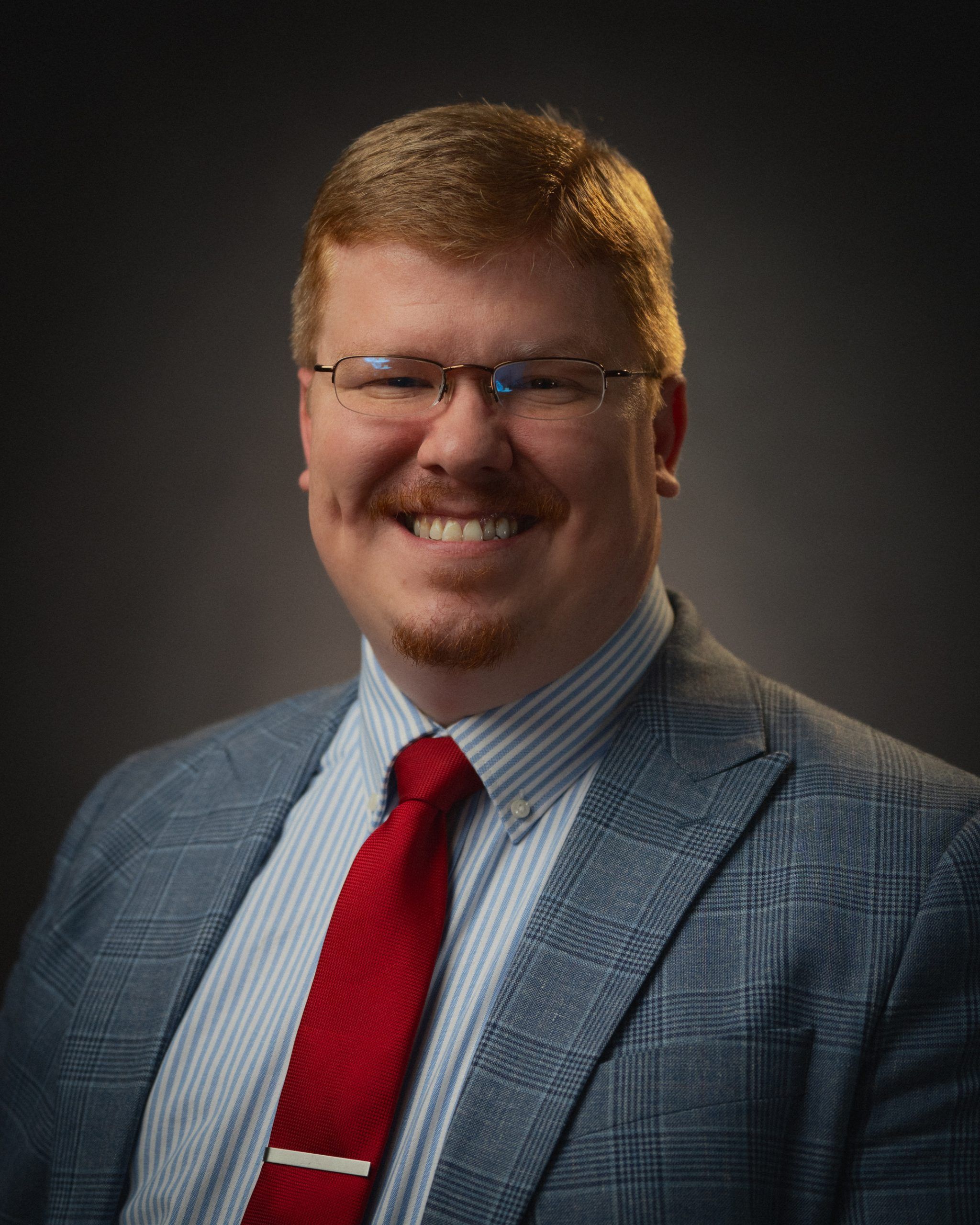
jrichey@nsa.edu
Jarrod D. Richey, MM
CSMI Administrator & Conservatory Consultant
Mr. Richey resides in Monroe, Louisiana, where he continues to teach music and choir at Geneva Academy in West Monroe, LA. Mr. Richey is also the Musicianship Levels 1, 2, & 3 Instructor for the Chenaniah Summer Music Institute. He is the founder and director of the Delta Youth Chorale, a children’s community choir that promotes music literacy through singing, folk dance, and other activities. Previously, Mr. Richey directed the choir and taught voice and music appreciation classes at the University of Louisiana at Monroe. He received his bachelor’s degree from Louisiana Tech University before completing his Master of Music at the University of Louisiana at Monroe. He also completed his national Kodály music teacher certification from Wichita State University. Mr. Richey is currently a doctoral student at Southwestern Baptist Theological Seminary working toward a Ph.D. in Church Music and Worship.
Additionally, each summer, he teaches solfege musicianship, folk-dancing, and folk song research and analysis courses for their Kodály music teacher training program, the Chenaniah Summer Music Institute, which he oversees. He is also an active elementary and middle school choir clinician and serves on the executive board of the Louisiana chapter of the American Choral Directors Association. He is the founder of the Jubilate Deo Summer Music Camp, a week-long choir and music camp open to kindergarten through college freshmen each June. He is the author of BACH to the Future: Fostering Music Literacy Today (2016) and general editor and contributing author to Raise the Song: A Classical Christian Guide to Music Education (2019). He is also the general editor for a recent school and family hymna, Let Joy Resound: A Singing School Hymnal. Jarrod and his lovely wife, Sarah, have seven choristers in training ranging from ages three to seventeen.
Publications
Education
Southwestern Baptist Theological Seminary, Fort Worth, TX
Current
PhD in Church Music & Worship
University of Louisiana Monroe
2011
MM in Choral Conducting
Louisiana Tech University, Ruston, LA
2008
BA in Music
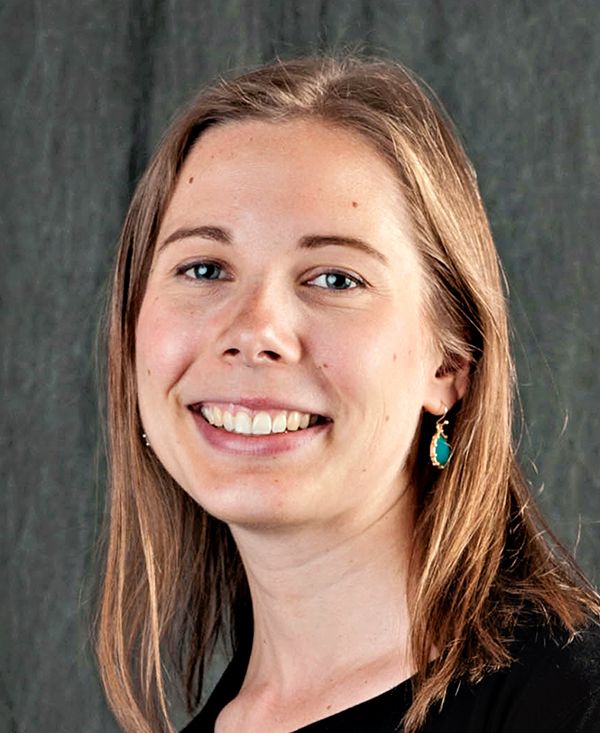
Sarah Davis
Pedagogy & Research Level 1 Instructor
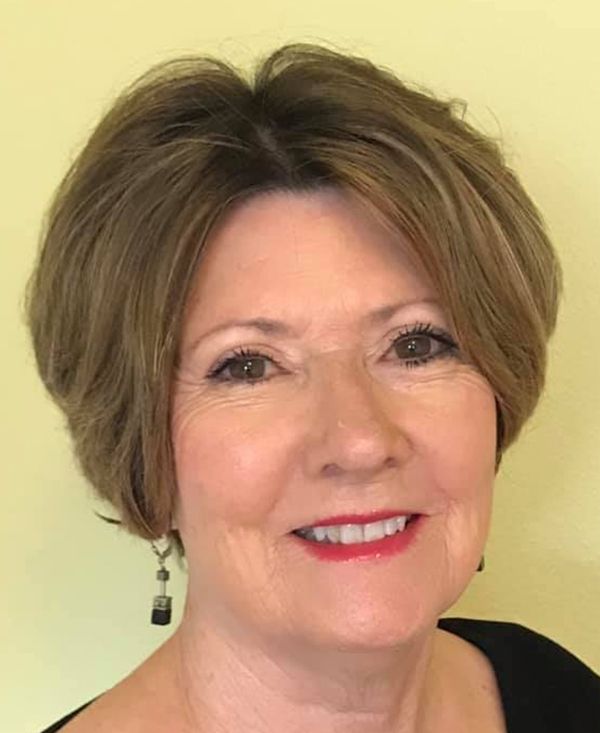
Diane Engle
Pedagogy & Research Level 2 Instructor
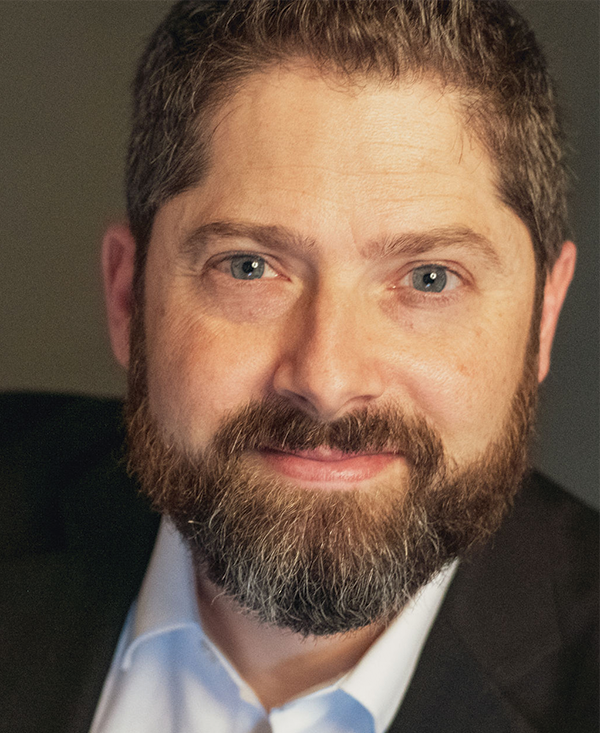
Aaron Snell
National Honor Choir Administrator, Music Camp Administrator, CSMI Level 3 Instructor
Aaron Snell is the choir director and music teacher at Logos School in Moscow, Idaho, where he has taught music at all grade levels, PK-12. His choirs at Logos have received superior ratings, 1st place in competitions, and All-State honors. Prior to coming to Logos in 2018, he taught for fifteen years in California, where his choirs were recognized as being among the top high school performing groups in the state. He is passionate about training students to be musically literate and skillful singers, in order to raise a new generation of capable worshippers in the church.
At New Saint Andrews College, Mr. Snell serves as the administrator for both the ACCS National Honor Choir and the NSA Summer Music Camp, and teaches Level 3 Pedagogy and Research for the Chenaniah Summer Music Institute. Aaron earned his B.A. in Music Education from California State University, Fullerton, and his Kodaly Level III certification at the Chenaniah Summer Music Institute, New Saint Andrews College. He has been married to his best friend, Amy, since 1997 and has five children.
Education
California State University, Fullerton
2002
BA in Music Education
Chapman University
2003
Single Subject Teaching Credential (Music
Chenaniah Summer Music Institute, New Saint Andrews College Conservatory of Music
2020
Kodály Level III Certification
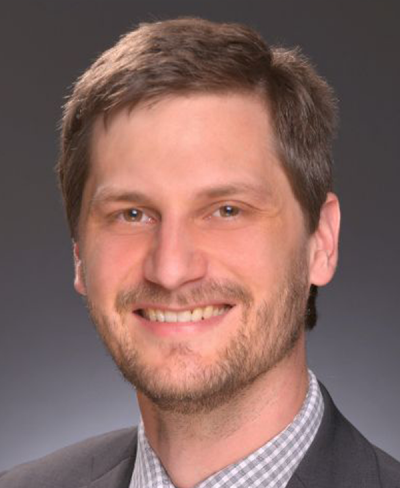
ctutino@nsa.edu
208-882-1566
Cole Tutino, DM
Cello Faculty
Dr. Cole Tutino is Lecturer in Music and New Saint Andrews College, where he teaches cello, music theory, and orchestra. He was previously Visiting Assistant Professor of Cello at Miami University in Oxford, OH, and Visiting Instructor of Cello at Luther College in Decorah, IA.
Dr. Tutino has performed extensively as a soloist, chamber musician, orchestral player, and recording artist. He has been principal of the Richmond Symphony Orchestra (IN) and a member of the Columbus Indiana Philharmonic and the Terre Haute Symphony Orchestra. As a chamber musician, he has been a member of the Oxford String Quartet, and the Luther College Piano Quartet. His solo appearances include performances with the Richmond Symphony Orchestra, the Cedarville University Orchestra, the Miami University Symphony Orchestra, and the Luther College Philharmonia. He has spent summers playing at the New Hampshire Music Festival, the Utah Festival Opera, the National Orchestral Institute, the Brevard Music Festival, the Mendocino Music Festival, and the Las Vegas Music Festival.
A proponent of a diverse array of musical genres, Dr. Tutino’s activities have included Baroque performance practice, new music, and folk and pop music. He has performed on Baroque cello with the Indiana University Baroque Orchestra, the Georgina Joshi Handel Project, and as part of the Bloomington Bach Cantata Project. At the conference of the Christian Fellowship of Art Music Composers, he premiered David Canfield’s Sonata for Cello and Piano, a composition that musically depicts the Christian tenets of salvation. He has also recorded with My Soul Among Lions and the Good Shepherd Band.
Education
Indiana University
2016
DM in Cello Performance
Indiana University
2011
MM in Cello Performance
San Jose State University
2009
BM in Cello Performance
Tuition & Costs:
CSMI tuition is the same for all three tracks in the program.
- 2-week Course Tuition: $900.00 (does not include books, travel, or lodging)
- Additionally, attendees will also need to purchase and have certain Textbooks/Materials for the class. Not all books used will be required each year and most books and materials will be used each subsequent summer. $250 is a general estimate of books, workbooks, and resource books that will be needed over the course. The New Saint Andrews College Bookstore offers most of the materials. Students can opt to purchase elsewhere if desirable, or some students have borrowed from others who have previously taken the course.
- Any student wishing to transfer specifically into the Kodály Certification course from another similar course may be subject to the transfer credit and fees depending on the type of enrollment. Please inquire about this possibility.

Watch the 2024 CSMI Concert
"MANY WATERS"
Common Questions
